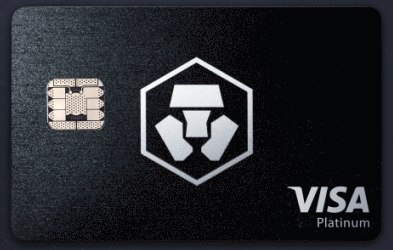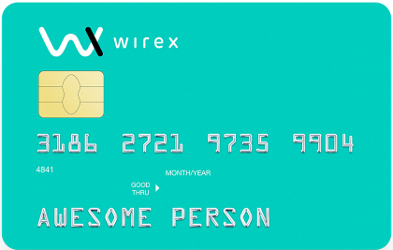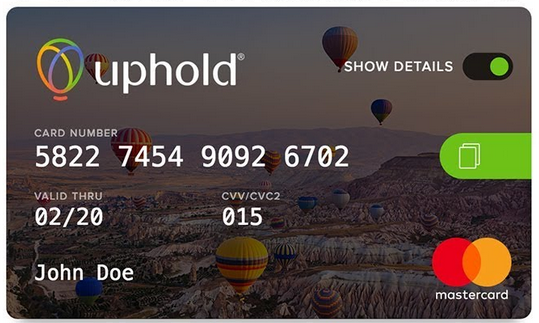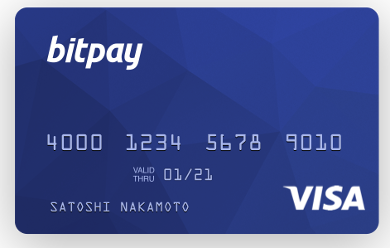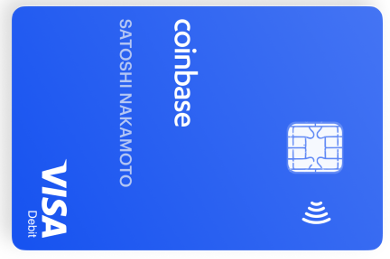
The Five Best Crypto Payment Cards for 2020
Crypto-powered payment cards give you a way to spend money wherever you go. We've reviewed five of the most popular cards on the market, from Crypto.com to Coinbase.
Crypto-powered payment cards give you a way to spend your Bitcoin and other crypto holdings while earning rewards. Here is our assessment of the top five.
Prepaid crypto cards are a valuable tool for the crypto enthusiast. Right now, most merchants and retailers do not accept cryptocurrency directly. Instead, these cards convert your cryptocurrency into an acceptable fiat currency as needed, which means that they are accepted by virtually all merchants and stores.
1. MCO Visa Card (Crypto.com)
The MCO Visa card is a payment card offered by Crypto.com, a Hong Kong-based crypto company founded in 2016. It offers some of the best cashback rewards of any of the cards listed, and the card is offered by a crypto-focused company.
Funding: To load the card, you can deposit cash through Crypto.com’s mobile app. You will need to deposit fiat (EUR, AUD, HKD, JPY, or GBP) via a bank transfer, credit card, or debit card payment.
You can also use cryptocurrency by trading them into fiat on Crypto.com’s mobile app. This feature supports Bitcoin, Ethereum, XRP, Litecoin, and most actively traded cryptocurrencies.
Fees: The MCO Visa Card has no issuance fee or monthly fee. There are fees and limits for ATM withdrawals, interbank exchange rates, and top ups, which are displayed in your account settings.
Rewards: You’ll earn MCO tokens as a reward on each purchase that you make. Exact rewards depend on how much MCO you’ve staked: with a free card you’ll receive 1% of your purchase value back, but with high-tier cards you can earn back as much as 5%. Other rewards include free subscriptions to Spotify, Netflix, and Amazon Prime.
Availability: Singapore, the U.S., and Europe.
Backed by: Visa.
2. Wirex
This card is offered by Wirex, a UK-based crypto payments company that has been in operation since 2014.
Funding: You can top up your Wirex card from a web interface or mobile app. You can deposit fiat (GBP, EUR, or USD) via SWIFT, Faster Payments, SEPA, card payments, or bank transfer.
You can also convert your cryptocurrency to a Wirex balance. Supported coins include Bitcoin, Litecoin, XRP, Waves, Dai, Nano, Stellar Lumens, and Wirex’s WXT token.
Fees: The Wirex card has no issuance fee, but it has a $1.50 monthly fee. You can spend up to $10,000 per day and make ATM withdrawals up to $250 per day. Other fees for currency exchange and bank transfers may apply; those fees can be seen on this page.
Rewards: Much like Crypto.com, Wirex offers rewards on each purchase. You will earn 0.5% back with a basic card, or up to 1.5% depending on the number of WXT tokens you hold.
Availability: The U.K. and over 130 other countries, excluding the U.S.
Backed by: Visa.
3. Uphold
Uphold is a crypto payments company founded in 2013. The company introduced its payment card in March 2020. It is also the default KYC and wallet provider for Brave Browser and Cred Earn.
Funding: You can add funds to Uphold from a web interface or mobile app. Several deposit methods are supported, including credit cards, debit cards, ACH bank transfer, and SEPA transfer.
You can also deposit several cryptocurrencies to Uphold, including Bitcoin, Litecoin, Ethereum, Bitcoin Cash, Dash, Bitcoin Gold, and XRP. Uphold is also integrated with the Brave browser—meaning that you can cash out your BAT tokens via Uphold.
Fees: Uphold has a $9.95 issuance fee and no monthly fees. You can spend up to $10,000 per day and withdraw up to $1,500 per day. Other transaction fees and conversion fees are listed here.
Rewards: Uphold has no built-in rewards. There are, however, third party service providers–like Cred—that provide interest and rewards. The full list can be found in Uphold’s app store.
Availability: The U.S and 184 other countries by waitlist.
Backed by: Mastercard.
4. BitPay Card
BitPay is a popular cryptocurrency payment processor that was founded in 2011. It launched a payment card for U.S. customers in 2016.
Funding: You can add funds to your BitPay card by sending Bitcoin from any compatible wallet. Alternately, you can add fiat via bank deposit, ACH credit, or services such as Western Union.
Fees: BitPay has a $9.95 issuance fee. You can spend up to $10,000 per day and make ATM withdrawals up to $1,500 per day ($5,000 per month). Other fees and limits are listed here.
Rewards: BitPay does not offer rewards.
Availability: All 50 U.S. states.
Backed by: Visa.
5. Coinbase Card
Coinbase is one of the most popular crypto exchanges, and it has offered a crypto payment card in the E.U. since 2019.
Funding: The Coinbase Card draws funds directly from your Coinbase Wallet. The card supports nine different coins: Bitcoin, Ethereum, Litecoin, Bitcoin Cash, XRP, BAT, Augur, 0x, and Stellar Lumens.
Fees: The Coinbase Card has a £4.95 issuance fee and no monthly fees. Daily spending limits begin at £10,000 but are negotiable. ATM withdrawals are free up to £200; above that there is a 1% fee and a £500 limit. Other service fees are listed here.
Rewards: The Coinbase Card does not offer rewards, but it is possible to earn rewards from other Coinbase features such as USDC savings accounts, Tezos staking and Coinbase Earn.
Availability: The Coinbase Card is available in the U.K. and Europe, but recent developments suggest that it will be expanded to the U.S. and other countries in the near future.
Backed by: Visa.
The Best Crypto Card?
Crypto payment cards are a valuable tool for anyone who wants to spend cryptocurrency on a daily basis. Most cryptocurrency holders should choose a card based on three factors: the countries that it serves, the cryptocurrencies that it supports, and the rewards and fees.
Though each card offers slightly different fee rates, those differences are typically minor. There are, however, large differences in cashback rewards and other benefits.
Disclosure: Crypto.com is a sponsor of Crypto Briefing.

